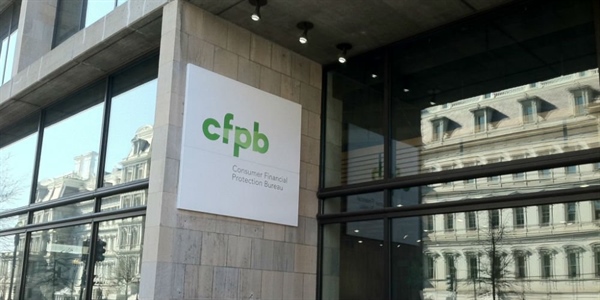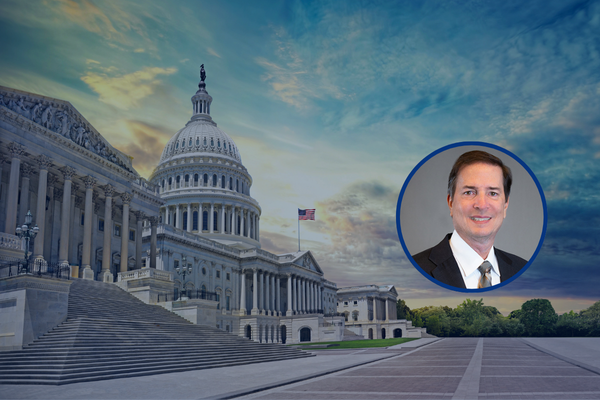
Making Your Voice Heard: Comment Letter Opportunity on the CFPB Proposed Rule
Categories:
Submitting a comment letter to the CFPB is a concrete step you can take to advocate for positive change and protect the interests of consumers and community financial institutions.
The Consumer Financial Protection Bureau’s landmark rule capping credit card late fees at $8 has caused an uproar among financial institutes and associations. The rule portends to cut late-fees from an average of $32 to $8 and will affect card issuers that together with their affiliates have one million or more open credit card accounts, while exempting smaller banks and credit unions.
The Consumer Bankers Association (CBA) warns that this rule can harm consumers; “This final rule will benefit a small minority of frequent late-payers by offsetting the costs of their late payments by increasing costs amongst the 74% of cardholders that pay their bills on time,” Consumer Bankers Association President and CEO Lindsey Johnson said in a statement, referencing data from a 2022 report. “Reducing late fees also eliminates a key risk-management tool for banks looking to ensure they don’t face a wave of missed payments,” she added. “As costs go up, card issuers are likely to reduce offerings to subprime borrowers who pose bigger risks of missed payments,”
A lawsuit challenging the regulation has already been filed, the plaintiffs in this action include: the Chamber of Commerce of the United States of America, Fort Worth Chamber of Commerce, Longview Chamber of Commerce, the American Bankers Association, the Consumer Bankers Association, and Texas Association of Business.
Does all this sound familiar? It should. The Consumer Financial Protection Bureau (CFPB) issued a proposed rule targeting overdraft fees.
There is intense pressure for community banks and credit unions to evaluate their overdraft strategy to ensure it is consumer-focused and responsible. Under the proposed rule, discretionary overdraft services would fall under Regulation Z (Truth in Lending Act). As a result, such products would be treated like credit cards, with consumers utilizing overdraft services, receiving new disclosures, and being evaluated for their ability to repay the obligation.
The proposed rule would create an exemption for “courtesy” overdraft services – which are services where the overdraft fee covered only the break-even cost of the service or fell within a CFPB-prescribed break-even cost.
While the rule currently exempts financial institutions under $10B in assets, it may potentially reshape overdraft practices for all community banks and credit unions. The CFPB has indicated that it will monitor the market response for all overdraft programs and is prepared to include community financial institutions.
But, will there stop there?
No. All regulatory agencies have increased their scrutiny of overdraft programs; the NCUA recently unveiled its supervisory priorities, indicating a heightened focus on overdraft and NSF fees. Unlike the previous year’s threshold, which targeted credit unions with assets exceeding $500 million, Chairman Todd Harper announced that the NCUA will now scrutinize all credit unions with assets surpassing $100 million.
So what can you do?
We would like to encourage all community financial institutions to submit comments to the CFPB on the proposed rule by April 1, 2024.
Your input is invaluable in ensuring that the proposed rule addresses the concerns of consumers and financial institutions alike. By submitting a comment letter, you can provide valuable insights and perspectives that will directly impact the outcome of the rule. Whether you represent a community bank or credit union, your unique perspective is crucial in shaping fair, transparent, and effective regulations.
Submit comments, identified by Docket No. CFPB-2024-0002 or RIN 3170-AA42, by any of these 3 methods:
- Federal eRulemaking Portal: https://www.regulations.gov. Follow the instructions for submitting comments. https://reginquiries.consumerfinance.gov/
- Email: [email protected] Include Docket No. CFPB-2024-0002 or RIN 3170-AA42 in the subject line of the message
- Mail/Hand Delivery/Courier: Comment Intake—2024 NPRM Overdraft, c/o Legal Division Docket Manager, Consumer Financial Protection Bureau, 1700 G Street NW, Washington, DC 20552.
CFPB Instructions: The CFPB encourages the early submission of comments.
All submissions should include the agency name and docket number or Regulatory Information Number (RIN) for this rulemaking. Commenters are encouraged to submit comments electronically.
Proprietary information or sensitive personal information, such as account numbers or Social Security numbers, or names of other individuals, should not be included. Submissions will not be edited to remove any identifying or contact information.
Please note: In general, all comments received will be posted without change to https://www.regulations.gov and all submissions, including attachments and other supporting materials, will become part of the public record and subject to public disclosure.
Here are some points that we suggest you add to your your comment letter:
- Alternative Solutions: Suggest alternative approaches to achieve the same objectives outlined in the proposed rule, emphasizing the importance of flexibility and tailored solutions for different types of financial institutions.
- Transparency: As per existing regulation, fees associated with overdraft services, are disclosed upfront in clear, understandable language. Account-holders have the option to opt-in to these services, empowering them with the choice to decide if overdraft protection meets their financial management needs. This level of transparency and autonomy respects the consumer’s ability to make informed decisions.
- Consumer Choice and Protection: Highlight the importance of consumer choice and protection, emphasizing the value of transparent overdraft solutions that empower consumers to make informed decisions about their finances.
- Impact on Community Financial Institutions: Express concerns about the potential adverse effects of the rule on community financial institutions, including the risk of revenue loss and reduced access to essential services for underserved communities.
For more information on this topic, check out the recorded webinar, Overdraft Overhaul: Insights into the CFPB’s Game-Changing Proposal




